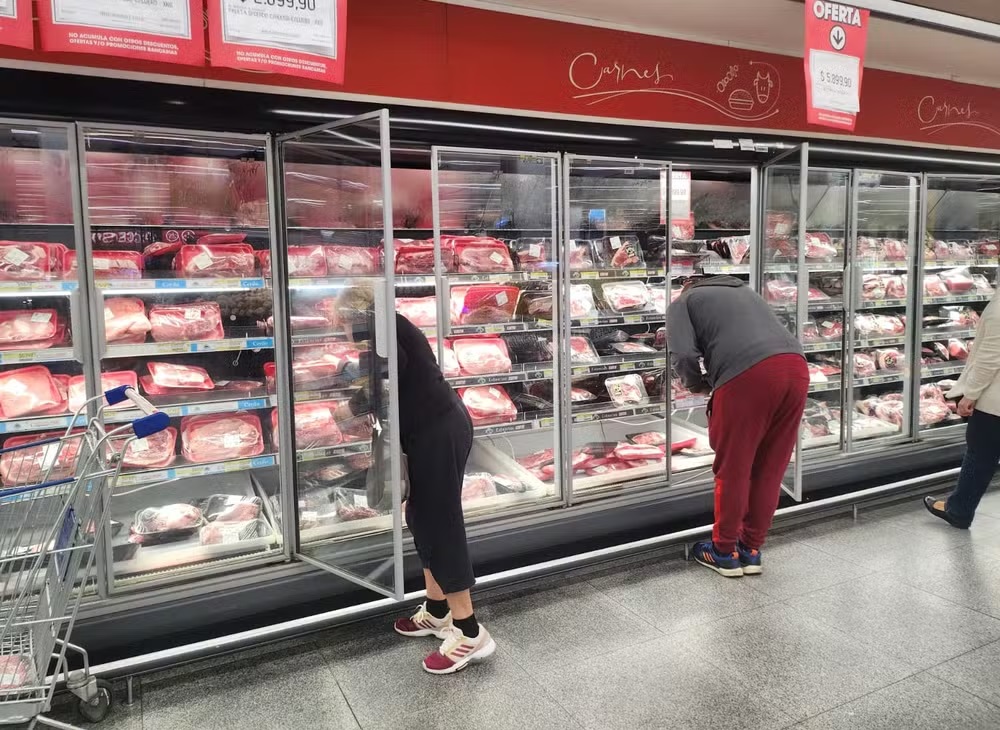
Published 07/09/2024 13:02 | Edited 07/09/2024 17:23
The low purchasing power of Argentine families has caused beef consumption to plummet in the country governed by ultra-liberal Javier Milei. Famous for its high consumption of red meat, the country’s population has opted for the cheapest protein, chicken.
Annual beef consumption is expected to fall to less than 45 kilograms per person, the lowest level in data dating back to the first decades of the last century, according to a report by the Rosario Stock Exchange, based on government data.
If the downward trend continues, consumption in 2024 will close at around 44.8 kg per inhabitant, the lowest rate since 1920, according to the study. In Argentina, proud of the quality of its beef, the historical average consumption of this food is 72.9 kg per year per inhabitant.
“The total consumption of beef, poultry and pork in Argentina could be around 105.7 kg per inhabitant in 2024, which means that each inhabitant will consume seven kilos less of meat in 2024 compared to the average of the last ten years, which is 112.8 kg”, the study points out.
This would mark the first time that Argentine demand for beef would be roughly on par with that for chicken, which has also been growing in popularity in other parts of the world.
The fall is the result of the impact of inflation, which reached 280% year-on-year in May, and the economic recession with the widespread collapse of all activities, according to official figures.
The country is already in a serious economic crisis halfway through the first year of Javier Milei’s presidency. Gross domestic product (GDP) fell by 5.1% in the first three months of 2024 compared to the beginning of 2023. Compared to the previous quarter, the drop was 2.6%, adding to a 2.5% drop in the fourth quarter of 2023.
Milei also devalued the country’s currency, which caused consumers’ purchasing power to plummet. Pork and poultry cost about half the price of beef.
More than half of Argentina’s population of 45 million is poor, according to statistics. In Buenos Aires, the country’s richest city, the rate of indigence — people who cannot afford to buy basic food — doubled from 8% to 16% in the first quarter of this year compared to the same period last year.
Source: vermelho.org.br

